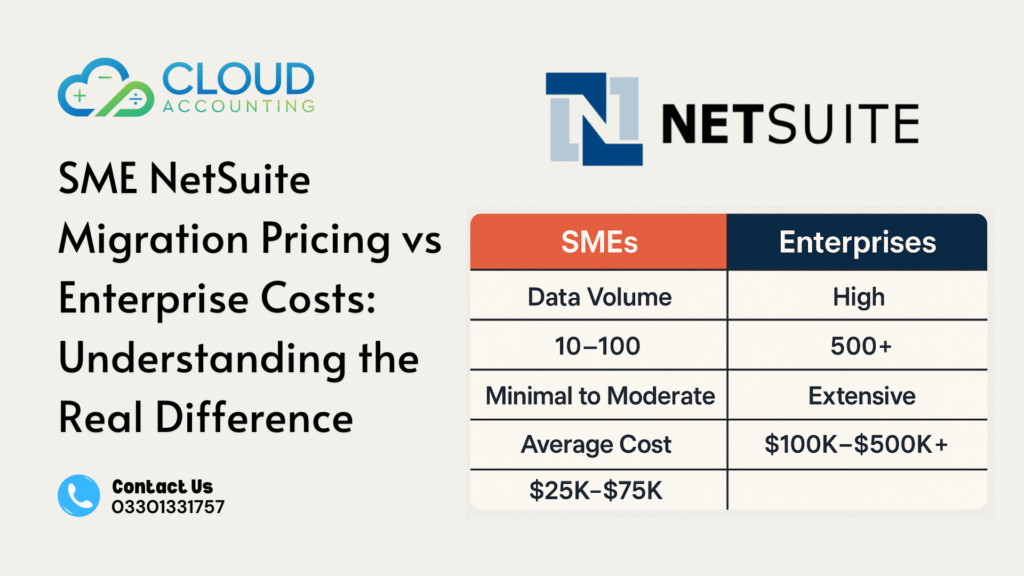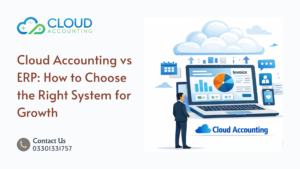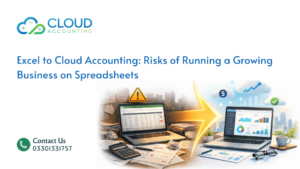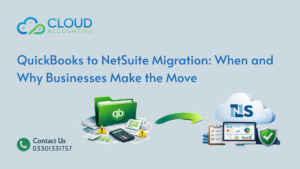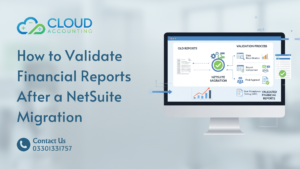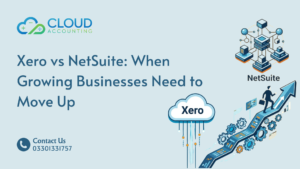Migrating to NetSuite ERP has become a strategic move for businesses seeking better financial visibility, automation, and scalability. However, one of the most common questions companies face is: How much does a NetSuite migration really cost?
The answer often depends on your business size. While SMEs (Small and Medium Enterprises) benefit from simpler setups and lower migration costs, enterprises face higher expenses due to complex structures, integrations, and customization needs.
Understanding these cost differences is critical to budgeting effectively and maximizing return on investment. In this guide, we’ll explore the SME NetSuite migration cost in detail, compare it to enterprise-level expenses, and show how your business can achieve a smooth transition—without unnecessary overspending.
What Is NetSuite Migration?
A NetSuite migration is the process of transferring your business’s financial and operational data from an existing system—such as QuickBooks, Xero, or legacy ERP software—into Oracle NetSuite, a cloud-based ERP platform.
This process goes far beyond simple data transfer. It typically involves:
- Data Migration: Extracting, cleaning, and importing data such as financial records, customer details, and inventory.
- System Configuration: Setting up NetSuite modules to match your company’s workflows.
- Customization: Tailoring dashboards, reports, and features to fit your unique requirements.
- Integration: Connecting NetSuite with other tools like CRMs, eCommerce platforms, or payroll systems.
- Testing and Training: Ensuring data accuracy and preparing your team for a seamless transition.
For SMEs, the migration is generally quicker and more affordable because of simpler data structures and fewer system dependencies. In contrast, enterprise migrations require extensive planning, custom integrations, and longer implementation timelines—driving up the overall cost.
In short, NetSuite migration is a strategic investment that modernizes your financial infrastructure and positions your business for scalable growth, but understanding your SME NetSuite Migration Cost upfront is essential to budgeting wisely.
Why Migration Costs Differ Between SMEs and Enterprises
When it comes to NetSuite migration, there’s no one-size-fits-all pricing model. The total cost depends on how complex your business operations are and how deeply you plan to integrate NetSuite into your ecosystem.
Here’s why the SME NetSuite Migration Cost differs so much from enterprise-level expenses:
1. Business Complexity
SMEs typically manage fewer subsidiaries, simpler processes, and smaller data volumes. Enterprises, on the other hand, often operate across multiple regions with complex tax structures, intercompany transactions, and advanced reporting needs—requiring deeper configuration and customization.
2. User Count and Licensing
Licensing fees increase with the number of users. A small business might need 10–50 users, while a large corporation could require 500+. Each additional user adds to the total implementation and support costs.
3. Customization Needs
SMEs usually adopt NetSuite’s standard modules with minimal customization. Enterprises, however, demand tailored workflows, automated approvals, and integration with multiple third-party systems—each customization adds development time and cost.
4. Data Volume and Integration
Migrating years of financial records, customer data, and operational history takes time and effort. SMEs may only have a few datasets to move, while enterprises often need complex integrations with CRM, HR, supply chain, and BI tools.
5. Implementation Timeline
The more complex the business structure, the longer the migration. While SMEs may complete their migration in 1–3 months, large-scale enterprise migrations can take up to a year.
In summary, SMEs enjoy faster, more cost-effective NetSuite migrations thanks to their leaner setups, whereas enterprises invest more heavily to ensure scalability and system-wide alignment.
SME NetSuite Migration Cost Breakdown
For small and mid-sized businesses, migrating to NetSuite is a smart step toward digital transformation—delivering real-time financial visibility, automation, and scalability. However, understanding the SME NetSuite Migration Cost is crucial to planning a realistic budget.
Let’s break down the typical cost components:
1. Software Licensing
NetSuite operates on a subscription model.
- Estimated Cost: $999–$3,000/month for base licenses
- Add-on Modules: Each functional module (like CRM, Inventory, or Advanced Financials) adds to the total subscription fee.
2. Data Migration
The effort required to clean, map, and import data can vary depending on the number of records and legacy systems.
- Estimated Cost: $5,000–$15,000
3. Configuration and Setup
Setting up your chart of accounts, workflows, and approval processes is a key part of implementation.
- Estimated Cost: $10,000–$25,000
4. Customization
SMEs often keep customizations light, focusing on dashboards, financial reports, or minor workflow tweaks.
- Estimated Cost: $2,000–$10,000
5. Training and Support
Employee onboarding and post-go-live support are essential for adoption success.
- Estimated Cost: $3,000–$7,000
💰 Total Estimated SME NetSuite Migration Cost:
$25,000 – $75,000 (on average)
These numbers can vary depending on data complexity, selected modules, and whether you use an implementation partner like Cloud Accounting.
👉 Pro Tip: SMEs can reduce overall migration costs by:
- Using NetSuite’s standard modules instead of over-customizing.
- Phasing the implementation to spread costs over time.
- Working with experienced NetSuite partners who optimize licensing and setup efficiently.
Enterprise NetSuite Migration Cost Breakdown
For large enterprises, migrating to NetSuite is a significant digital transformation project that involves complex planning, multiple business units, and large-scale integrations. While SMEs enjoy straightforward migrations, enterprise implementations require far greater resources—both technical and financial.
Let’s look at the main cost components driving enterprise-level NetSuite migrations:
1. Licensing and User Fees
Enterprises typically require hundreds of user licenses, multiple subsidiaries, and advanced features.
- Estimated Cost: $3,000–$10,000/month (base + add-ons)
- Global Multi-Entity Setup: Adds additional cost per region or business unit.
2. Data Migration and Integration
Migrating vast amounts of data across multiple systems (CRM, HR, inventory, manufacturing, etc.) is one of the biggest cost drivers.
- Estimated Cost: $20,000–$100,000+
- Includes data cleansing, validation, and multi-system integration.
3. Customization and Development
Enterprises often need highly customized dashboards, approval hierarchies, and automation workflows to match complex operations.
- Estimated Cost: $30,000–$150,000+
4. Implementation and Project Management
Implementation teams include consultants, developers, and project managers working for several months.
- Estimated Cost: $50,000–$200,000+
- Timeline: Typically 6–12 months.
5. Training, Support, and Change Management
With hundreds of employees to onboard, comprehensive training programs and ongoing support are essential.
- Estimated Cost: $10,000–$50,000
💰 Total Estimated Enterprise NetSuite Migration Cost:
$100,000 – $500,000+ (depending on complexity, entities, and regions involved)
While this may seem high, enterprises benefit from enhanced automation, unified data visibility, and long-term cost efficiency. Comparing this with the SME NetSuite Migration Cost, it’s clear that SMEs have a major financial advantage—but both business types gain scalable value from a successful implementation.
SME vs Enterprise: Comparative Cost Table
When comparing SME NetSuite Migration Cost with enterprise-level projects, the differences become clear in scale, complexity, and overall investment.
Below is a quick comparison showing how costs and implementation timelines vary by business size:
| Factor | SMEs | Enterprises |
| Data Volume | Low to Moderate | Very High |
| Users | 10–100 | 500+ |
| Customization Level | Minimal to Moderate | Extensive |
| Integrations | Few (CRM, Accounting) | Multiple (CRM, HR, SCM, BI, etc.) |
| Implementation Time | 1–3 months | 6–12 months |
| Migration Cost Range | $25,000 – $75,000 | $100,000 – $500,000+ |
| Licensing Model | Standard Subscription | Multi-Entity Enterprise Plan |
| Support Needs | Basic User Training | Dedicated Support Teams |
| ROI Timeline | 6–12 months | 12–24 months |
Analysis
For SMEs, NetSuite delivers rapid results with lower upfront investment and faster adoption. Enterprises, while facing higher initial costs, gain deeper functionality and multi-subsidiary management capabilities—making it a worthwhile long-term investment.
Ultimately, understanding where your business fits in this spectrum helps you budget smarter and choose the right NetSuite migration strategy for your scale.
How to Maximize ROI from Your NetSuite Migration
Whether you’re a growing SME or a large enterprise, a successful NetSuite migration isn’t just about getting the system live—it’s about achieving measurable returns from your investment. Here’s how to ensure your SME NetSuite Migration Cost or enterprise spend delivers long-term value.
1. Conduct a Pre-Migration Audit
Start by reviewing your existing systems, workflows, and data quality. This helps you identify what to migrate, what to clean up, and what to leave behind—saving time and money during implementation.
2. Prioritize Critical Modules
Avoid deploying every NetSuite module at once. Begin with essential components like financials, CRM, and inventory management. Add advanced modules later as your team grows comfortable with the platform.
3. Avoid Over-Customization
Customization can add significant cost and delay. For SMEs, sticking to NetSuite’s standard workflows often achieves 80% of goals without the extra expense. Enterprises should also standardize wherever possible to reduce maintenance complexity.
4. Choose the Right Implementation Partner
Working with an experienced partner like Cloud Accounting ensures your migration is efficient, compliant, and cost-optimized. Expert consultants can help you configure NetSuite correctly the first time—minimizing post-launch issues.
5. Invest in Training and Change Management
Even the best ERP system fails without user adoption. Conduct hands-on training sessions, create internal champions, and ensure teams are comfortable using NetSuite before go-live.
6. Plan for Continuous Improvement
After migration, regularly review performance metrics and system usage. Optimize dashboards, automate manual processes, and explore additional NetSuite modules to boost long-term ROI.
Get an Accurate NetSuite Migration Quote
Every business is different, so is every NetSuite migration. Whether you’re an SME seeking a streamlined, cost-effective implementation or an enterprise planning a complex multi-entity rollout, having a clear understanding of your migration cost is essential.
At Cloud Accounting, we specialize in NetSuite migrations that are:
✅ Scalable – Tailored to your company’s size and growth plans.
✅ Cost-Efficient – Focused on optimizing your SME NetSuite Migration Cost without compromising quality.
✅ Fully Managed – From data migration to training, we handle every step with precision.
Our certified consultants have helped businesses across industries transition smoothly to NetSuite on time and within budget.
Ready to discover your true migration cost Today? Get a free NetSuite migration consultation with Cloud Accounting today and receive a personalized cost estimate for your business.
Contact Cloud Accounting Now to start your NetSuite success journey.

